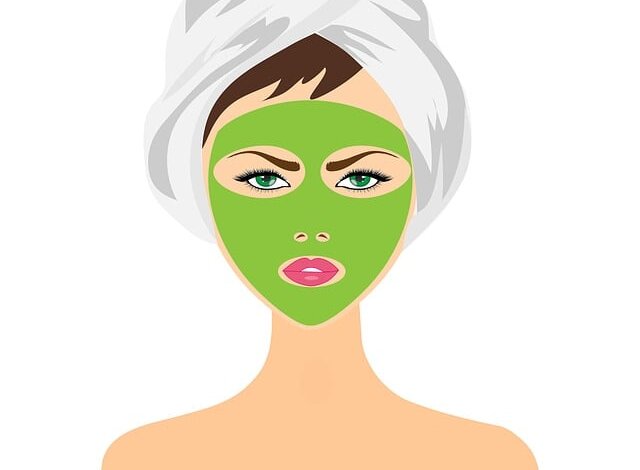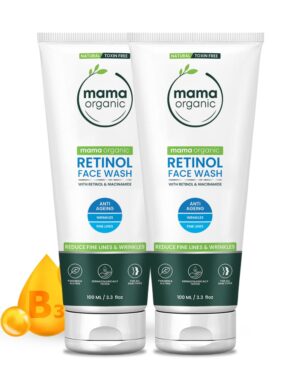Skin Care in Hindi wellhealthorganic: Achieving Healthy and Glowing Skin

Skin Care in Hindi wellhealthorganic
Skin care is not just about looking good; it’s about feeling good too. Your skin is the largest organ of your body, and it deserves the utmost care and attention. In this article, we will delve into the world of skin care, exploring its importance, common issues, and effective tips to achieve radiant and healthy skin.
Understanding the Importance of Skin Care
Why is Skin Care Important?
Skin care is essential for maintaining the overall health and appearance of your skin. It helps in preventing various skin conditions, slowing down the aging process, and promoting a youthful glow.
Impact of Good Skin Care Habits
Developing good skin care habits can have a profound impact on your skin’s health. Consistent care can help in maintaining skin elasticity, preventing acne breakouts, and reducing the appearance of wrinkles.
Common Skin Issues
Skin can face various issues such as acne, dryness, wrinkles, and sun damage. Understanding these issues is crucial for addressing them effectively.
Acne
Acne is a common skin condition characterized by the formation of pimples, blackheads, and whiteheads. It can be caused by factors like excess oil production, clogged pores, and bacteria.
Dryness
Dry skin lacks moisture, leading to flakiness, itching, and irritation. Factors like harsh weather, hot showers, and certain skincare products can contribute to dryness.
Wrinkles
Wrinkles are a natural part of aging but can be accelerated by factors like sun exposure, smoking, and poor skincare habits. They appear as fine lines and deep creases on the skin’s surface.
Sun Damage
Excessive sun exposure can cause sunburn, premature aging, and increase the risk of skin cancer. Protecting the skin from harmful UV rays is essential for maintaining its health and vitality.
Basic Skin Care Routine
A basic skincare routine consists of cleansing, toning, moisturizing, and applying sunscreen. Following these steps daily can help in keeping your skin clean, hydrated, and protected.
Cleansing
Cleansing removes dirt, oil, and impurities from the skin, preventing clogged pores and breakouts. Choose a gentle cleanser suitable for your skin type and cleanse twice daily.
Toning
Toning helps in balancing the skin’s pH levels and tightening pores. Use a alcohol-free toner to hydrate and refresh your skin after cleansing.
Moisturizing
Moisturizing is essential for keeping the skin hydrated and supple. Choose a moisturizer according to your skin type and apply it twice daily, especially after cleansing.
Sunscreen
Sunscreen protects the skin from harmful UV rays, preventing sunburn, premature aging, and skin cancer. Apply a broad-spectrum sunscreen with SPF 30 or higher every day, even on cloudy days.
Natural Remedies for Healthy Skin
Nature offers a plethora of ingredients that are beneficial for the skin. Incorporating natural remedies into your skincare routine can provide nourishment and rejuvenation.
Aloe Vera
Aloe vera has soothing and healing properties, making it ideal for treating sunburns, acne, and inflammation. Apply fresh aloe vera gel directly to the skin or look for skincare products containing aloe vera extract.
Coconut Oil
Coconut oil is rich in fatty acids and antioxidants, making it an excellent moisturizer for dry skin. Apply coconut oil to damp skin after showering to lock in moisture and soften the skin.
Honey
Honey is a natural humectant, meaning it attracts and retains moisture in the skin. Use raw honey as a face mask or mix it with other ingredients to create a hydrating and nourishing treatment.
Turmeric
Turmeric has anti-inflammatory and antibacterial properties, making it effective in treating acne and reducing redness. Mix turmeric powder with yogurt or honey to create a brightening and clarifying face mask.
Diet and Skin Health
Your diet plays a significant role in determining the health of your skin. Consuming a balanced diet rich in vitamins, minerals, and antioxidants can promote a clear and radiant complexion.
Importance of Nutrition
Nutrient-rich foods provide essential vitamins and minerals that support skin health and repair. Include plenty of fruits, vegetables, lean proteins, and whole grains in your diet for optimal skin nourishment.
Foods for Healthy Skin
Certain foods are particularly beneficial for the skin due to their high nutrient content. Incorporate foods like salmon, avocados, nuts, and green tea into your diet for glowing and youthful skin.
Hydration and Skin Care
Proper hydration is essential for maintaining skin health and vitality. Drinking an adequate amount of water daily helps in flushing out toxins, keeping the skin hydrated, and promoting a clear complexion.
Drinking Enough Water
Water is vital for the body’s overall function, including skin hydration. Aim to drink at least eight glasses of water per day to keep your skin plump and moisturized from within.
Benefits of Hydrated Skin
Hydrated skin appears more radiant, supple, and youthful. It is less prone to dryness, irritation, and premature aging, making hydration a crucial aspect of your skincare routine.
Sleep and Its Impact on Skin
Getting enough sleep is essential for skin repair, regeneration, and overall health. Lack of sleep can lead to various skin issues, including dark circles, dullness, and premature aging.
Importance of Good Sleep
During sleep, the body undergoes repair and renewal processes, including skin cell regeneration. Getting seven to nine hours of quality sleep per night allows the skin to repair and rejuvenate, resulting in a fresh and glowing complexion.
How Lack of Sleep Affects Skin
Inadequate sleep can disrupt the body’s natural rhythms, leading to increased stress hormone levels and inflammation. This can manifest on the skin as breakouts, dullness, and fine lines.
Stress Management for Skin Care
Chronic stress can take a toll on your skin, leading to increased oil production, breakouts, and dullness. Implementing stress-relieving techniques into your daily routine can help in maintaining a clear and radiant complexion.
Effects of Stress on Skin
Stress triggers the release of cortisol, a hormone that can stimulate oil glands and increase inflammation in the skin. This can exacerbate existing skin conditions and lead to premature aging.
Stress-Relieving Techniques
Practicing relaxation techniques such as deep breathing, meditation, and yoga can help in reducing stress levels and promoting skin health. Incorporate these activities into your daily routine to combat stress and maintain a healthy glow.
Exercise and Skin Health
Regular exercise not only benefits your overall health but also has positive effects on your skin. Physical activity improves circulation, promotes detoxification, and enhances the skin’s appearance.
Circulation and Skin Glow
Exercise increases blood flow to the skin, delivering oxygen and nutrients to the cells and promoting a healthy glow. Incorporate activities like brisk walking, jogging, or cycling into your routine for optimal skin benefits.
Sweat and Detoxification
Sweating during exercise helps in flushing out toxins from the body, including those that can clog pores and lead to breakouts. Be sure to cleanse your skin thoroughly after sweating to prevent pore congestion.
Related post: 10 tips-for-skin-care-in-hindi-wellhealthorganic/
Skin Care for Different Skin Types
Understanding your skin type is essential for choosing the right products and treatments. Whether you have oily, dry, combination, or sensitive skin, there are specific strategies to keep your skin healthy and balanced.
Oily Skin
Oily skin is prone to excess sebum production, leading to shine, enlarged pores, and acne. Use oil-free or non-comedogenic products to avoid clogging pores and consider incorporating ingredients like salicylic acid or benzoyl peroxide into your routine.
Dry Skin
Dry skin lacks moisture and may feel tight, rough, or flaky. Opt for hydrating and nourishing products that contain ingredients like hyaluronic acid, glycerin, and ceramides to replenish moisture and restore skin barrier function.
Combination Skin
Combination skin has a mix of oily and dry areas, typically with an oily T-zone and drier cheeks. Use products that balance oil production while providing hydration to dry areas. Consider using a mattifying moisturizer on oily areas and a richer moisturizer on dry areas.
Sensitive Skin
Sensitive skin is prone to irritation, redness, and allergic reactions. Choose fragrance-free and hypoallergenic products formulated for sensitive skin and perform patch tests before trying new products to avoid adverse reactions.
Importance of Regular Exfoliation
Exfoliation is the process of removing dead skin cells from the surface of the skin, revealing smoother and brighter skin underneath. Incorporating regular exfoliation into your skincare routine can improve texture, tone, and overall skin health.
Benefits of Exfoliation
Exfoliation helps in unclogging pores, reducing acne breakouts, and promoting cell turnover. It also enhances the absorption of skincare products and improves the efficacy of treatments.
How to Exfoliate Safely
Choose a gentle exfoliant suitable for your skin type, such as a chemical exfoliant with alpha or beta hydroxy acids or a physical exfoliant with gentle scrubbing particles. Exfoliate 1-3 times per week, depending on your skin’s tolerance, and avoid over-exfoliating, which can cause irritation and sensitivity.
Professional Skin Care Treatments
In addition to a regular skincare routine, professional treatments can provide targeted solutions for specific skin concerns. From facials to chemical peels, there are various options available to address your unique skin needs.
Facials
Facials involve deep cleansing, exfoliation, extractions, and hydration to rejuvenate the skin and address specific concerns. Choose a facial tailored to your skin type and concerns, whether it’s acne, aging, or hydration.
Chemical Peels
Chemical peels use exfoliating agents like alpha hydroxy acids (AHAs), beta hydroxy acids (BHAs), or trichloroacetic acid (TCA) to remove dead skin cells and stimulate cell turnover. They can improve skin texture, tone, and clarity, and reduce the appearance of fine lines, acne scars, and sun damage.
Microdermabrasion
Microdermabrasion is a non-invasive exfoliation treatment that uses a diamond-tipped wand or fine crystals to remove dead skin cells and stimulate collagen production. It can improve skin texture, reduce fine lines and wrinkles, and enhance the effectiveness of skincare products.
Laser Therapy
Laser therapy uses focused light energy to target specific skin concerns, such as wrinkles, acne scars, pigmentation, and hair removal. It can provide dramatic results with minimal downtime, depending on the type of laser and treatment area.
Tips for Aging Gracefully
Aging is a natural process, but there are ways to age gracefully and maintain healthy and vibrant skin as you grow older. Embracing self-love, adopting healthy habits, and taking care of your skin can help you look and feel your best at any age.
Acceptance and Self-Love
Embrace the changes that come with aging and celebrate the wisdom and experiences that have shaped you. Cultivate self-love and confidence, knowing that true beauty comes from within.
Healthy Habits for Aging Skin
Incorporate anti-aging ingredients like retinoids, vitamin C, and peptides into your skincare routine to target fine lines, wrinkles, and loss of elasticity. Practice sun protection daily, avoid smoking, and maintain a healthy lifestyle with balanced nutrition and regular exercise.
Conclusion
Skin care is not just a luxury; it’s a necessity for maintaining the health and vitality of your skin. By understanding your skin’s needs and adopting a tailored skincare routine, you can achieve radiant, healthy, and youthful-looking skin at any age.
FAQs
- What are the essential steps in a basic skincare routine?
- A basic skincare routine consists of cleansing, toning, moisturizing, and applying sunscreen.
- How can I address specific skin concerns like acne or wrinkles?
- Consider incorporating targeted treatments such as acne-fighting ingredients like salicylic acid or anti-aging ingredients like retinoids into your skincare routine.
- Are natural remedies effective for treating skin issues?
- Natural remedies can be beneficial for the skin, but results may vary. It’s essential to choose evidence-based ingredients and products backed by research.
- What should I look for in skincare products for sensitive skin?
- Opt for fragrance-free and hypoallergenic products formulated for sensitive skin and perform patch tests before trying new products to avoid adverse reactions.
- How often should I exfoliate my skin?
- Exfoliation frequency depends on your skin type and tolerance. Generally, exfoliate 1-3 times per week with a gentle exfoliant to avoid over-exfoliation.
also reads: Radiant Health Awaits: Explore Acupuncture in Berkeley





One Comment